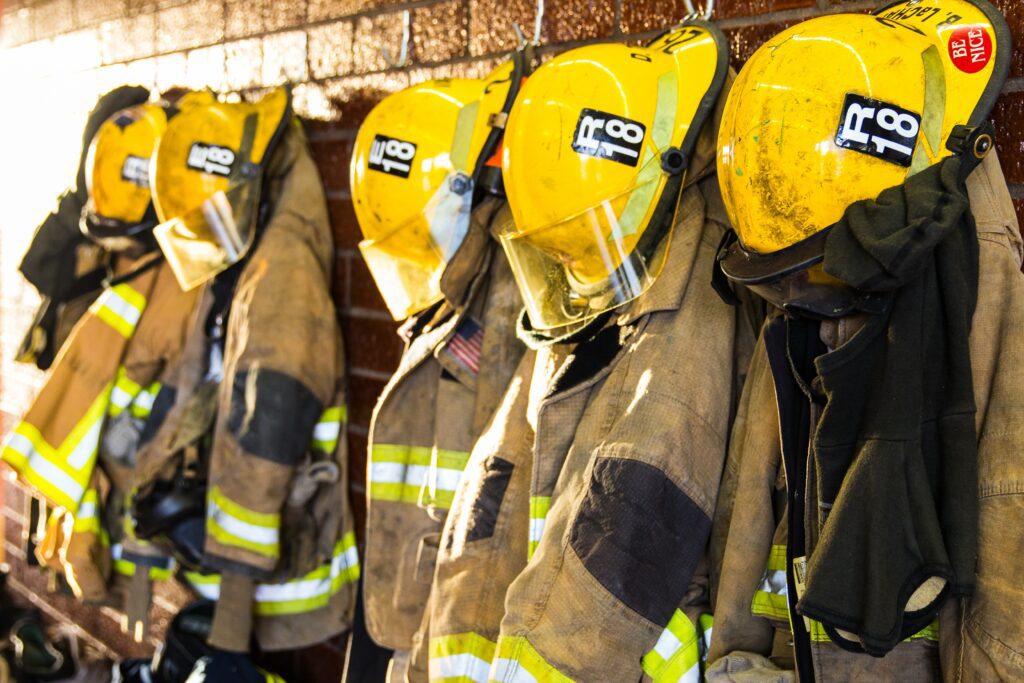In today’s increasingly complex society, it is common for our first responders — paramedics, police officers, firefighters, and others — to face situations involving individuals struggling with mental health issues regularly. Additionally, the high-stress nature of their jobs can take a severe toll on their mental health. Thus, the importance of providing comprehensive mental health training for our first responders cannot be overstressed. This article explores the necessity of mental health training for first responders from a dual perspective: improving community outcomes and ensuring the mental well-being of the responders themselves.
Mental Health Training for Better Community Outcomes
First responders often serve as the first line of defense in mental health crises. These encounters may involve individuals grappling with depression, anxiety, bipolar disorder, schizophrenia, and PTSD. Without appropriate mental health training, first responders may be unprepared to effectively manage these situations, potentially resulting in poor outcomes for the individuals involved and the wider community.
- De-escalation and understanding: Mental health training enables first responders to identify and understand symptoms of mental illness, leading to better decision-making and de-escalation tactics. This training can decrease the risk of violent confrontations, ensuring safer outcomes for both the individual in crisis and the responder.
- Appropriate resource allocation: Mental health training can equip first responders with the knowledge to differentiate between criminal activities and manifestations of mental illness. This understanding is crucial in guiding decisions about resource allocation, such as whether it’s more appropriate to involve mental health professionals instead of pursuing legal consequences.
- Strengthening community trust: When first responders are trained to handle mental health crises with empathy and understanding, it can significantly bolster community trust. Positive interactions with first responders can encourage those struggling with mental health issues to seek help proactively, thus promoting a healthier community.
The Importance of Mental Health Training for First Responders Themselves
The nature of first responder work often involves high-stress, traumatic incidents. Over time, these experiences can take a toll on their mental health, leading to post-traumatic stress disorder (PTSD), depression, and anxiety. The stigma of seeking help for mental health issues can exacerbate these problems.
- Recognizing and managing stress: Mental health training can provide first responders with the tools to recognize signs of mental distress in themselves and their colleagues. They can learn strategies to manage stress effectively, promoting healthier coping mechanisms over harmful ones like substance misuse.
- Preventing burnout: Chronic stress and lack of emotional support can lead to burnout, characterized by emotional exhaustion, cynicism, and reduced personal accomplishment. Mental health training can help first responders identify early signs of burnout and take necessary steps to prevent its progression.
- Promoting a culture of support: By incorporating mental health training into the standard training protocol for first responders, we can break down the stigma associated with mental health issues within these professions. This shift can foster a more supportive, understanding work environment that encourages first responders to seek help when needed.
Conclusion
In our evolving society, the need for mental health training for first responders is more apparent than ever. By equipping these vital community members with the skills to handle mental health crises effectively, we can promote safer, more empathetic interactions between first responders and the individuals they serve. Moreover, this training can ensure that first responders are better prepared to manage their mental health, fostering healthier, more supportive work environments. As we grapple with the growing prevalence of mental health issues, this training is not just a nice-to-have — it’s a must-have.
References:
- Watson, A. C., Corrigan, P. W., & Ottati, V. (2004). Police officers’ attitudes toward and decisions about persons with mental illness. Psychiatric Services, 55(1), 49-53.
- Richmond, J. S., Berlin, J. S., Fishkind, A. B., Holloman, G. H., Zeller, S. L., Wilson, M. P., … & Ng, A. T. (2012). Verbal de-escalation of the agitated patient: the American Association for Emergency Psychiatry Project Beta De-escalation Workgroup consensus statement. Western Journal of Emergency Medicine, 13(1), 17-25.
- Patterson, G. T., Chung, I. W., & Swan, P. W. (2014). Stress management interventions for police officers and recruits: A meta-analysis. Journal of Experimental Criminology, 10(4), 487-513.
- Komarovskaya, I., Maguen, S., McCaslin, S. E., Metzler, T. J., Madan, A., Brown, A. D., … & Marmar, C. R. (2011). The impact of killing and injuring others on mental health symptoms among police officers. Journal of Psychiatric Research, 45(10), 1332-1336.
- Mealer, M., Burnham, E. L., Goode, C. J., Rothbaum, B., & Moss, M. (2009). The prevalence and impact of post-traumatic stress disorder and burnout syndrome in nurses. Depression and anxiety, 26(12), 1118-1126.
